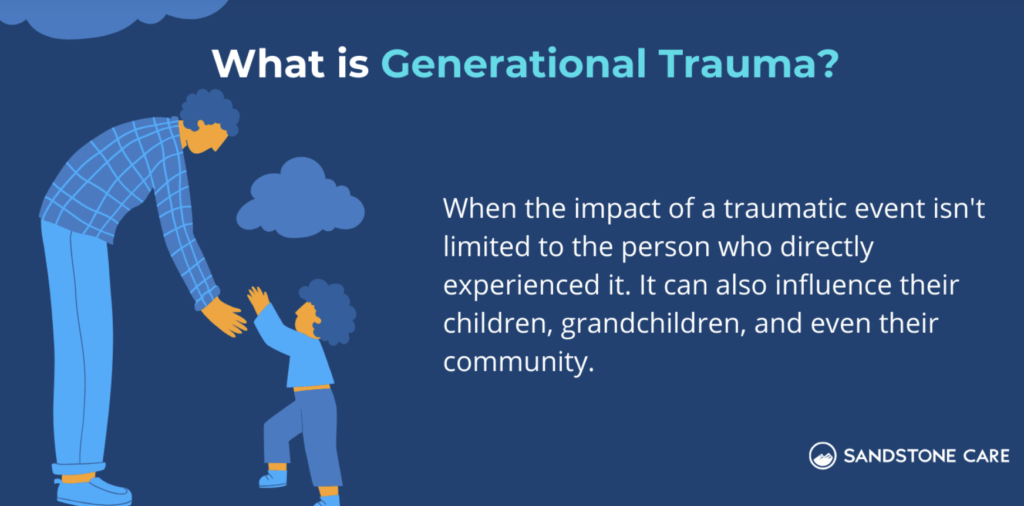
Emotional trauma is one of the most common types of generational trauma. It involves how families handle emotional stress and the emotional response to traumatic events. Emotional trauma can manifest in various ways, such as depression, anxiety, and post-traumatic stress disorder (PTSD). Women who’ve experienced emotional trauma may struggle with low self-esteem, trust issues, and relationship problems. However, there are treatment options that can help, such as therapy, counseling, and support groups. Breaking generational Trauma is possible.

Physical Trauma
Physical trauma occurs when an individual experiences bodily harm from abuse, violence, or accident. This trauma can lead to chronic pain, body dysfunction, and psychological distress. Research has shown that women who have experienced physical trauma have a higher risk of developing chronic illnesses such as diabetes and heart disease. Generational trauma can adversely affect a person’s physical health person. Unresolved trauma can cause high blood pressure, diabetes, and other health issues. Additionally, it can change your body’s response to stress in a way that can have long-lasting impacts on your health and immune system.
How does trauma spill from one generation to next generation

Sexual Trauma
Sexual trauma happens when an individual experiences sexual abuse or assault. Women who’ve experienced sexual trauma may struggle with guilt, shame, and fear, which can affect their sense of self-worth. The long-term impact of sexual trauma can include PTSD, anxiety, and depression. The good news is that resources are available to help survivors of sexual trauma, including therapy, counseling, and advocacy organizations.
Breaking Generational -Interpersonal Trauma

Interpersonal trauma stems from relationships and social interactions. It includes emotional, physical, and sexual abuse within the family, workplace, or community. Women who’ve experienced interpersonal trauma may struggle with trust issues, difficulty building healthy relationships, and social isolation. Relationships are often impacted by generational trauma. Emotional disconnection, isolation, and avoidance may cause marital issues, friendship struggles, and parenting problems. A person’s communication skills, ability to trust others, and openness can suffer.

Breaking Generational – Cultural Trauma
Generational trauma can affect an individual’s cultural identity and their connection to their roots. They may feel disconnected from their culture or need help with embracing cultural customs. Celebrating cultural events and traditions that are meaningful to a person can help connect them to their roots and community at large. Women who’ve experienced cultural trauma may struggle with identity issues, low self-esteem, and cultural disconnection.
Learn how anger and weight gain is connected
Discover how you can transform your identity

In conclusion, generational trauma is a complex issue affecting women differently. The impact of trauma can be overwhelming and can lead to long-term psychological and physical health issues. It’s important to acknowledge the presence of traumas, such as emotional, physical, sexual, interpersonal, and cultural trauma, and work towards resolving them. The good news is that resources such as therapy, counseling, support groups, and advocacy organizations are available to support women in their healing journey. It’s time to break the cycle of generational trauma and encourage recovery and healing.